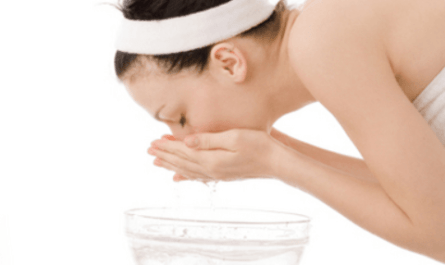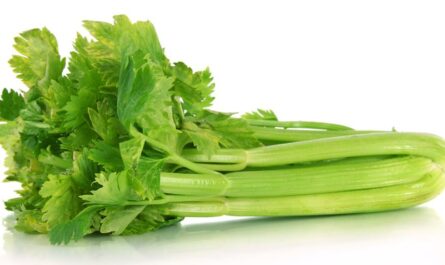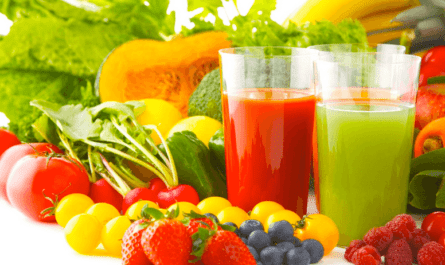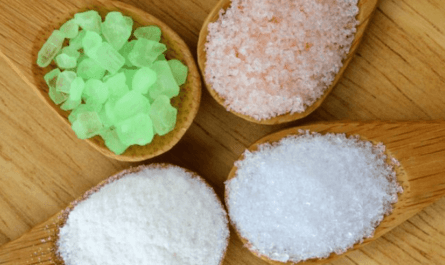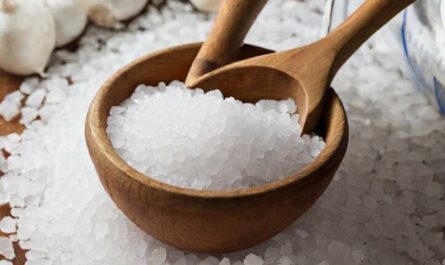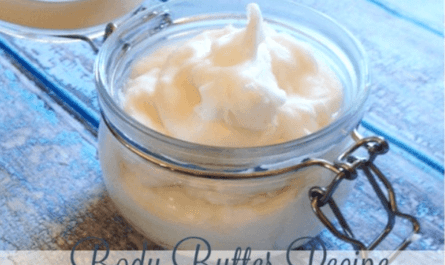Dandruff is a common scalp condition that affects millions of people worldwide. It can cause embarrassment, discomfort, and even social anxiety. While there are various medicated shampoos and topical treatments available, many people still want natural diet remedies for dandruff.Fortunately, Incorporating certain nutrient-rich foods into your diet can be a powerful tool in the fight against dandruff.In this comprehensive article, we’ll explore 12 foods that should be included in an anti-dandruff diet.
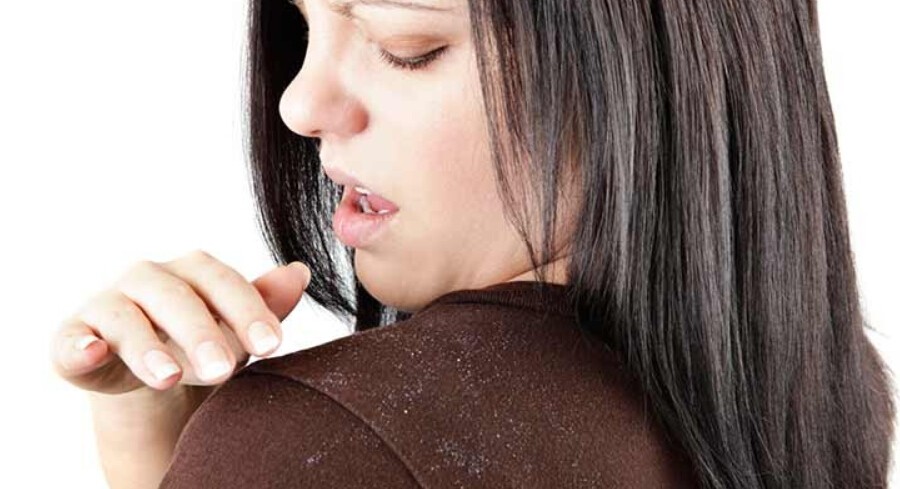
What is Dandruff?
Dandruff is characterized by the appearance of white or yellowish flakes on the scalp and in the hair. It is often accompanied by itching, redness, and irritation. While it’s a common misconception that dandruff is caused by poor hygiene, the reality is that it’s a complex condition with multiple potential causes.
One of the primary culprits behind dandruff is a fungus called Malassezia. It is naturally present on the scalp of most people. However, In some individuals, this fungus can overgrow and irritate. This will lead to the rapid shedding of skin cells and the appearance of visible flakes.
Other factors that can contribute to dandruff include dry skin, sensitivity to hair care products, hormonal imbalances, and certain skin conditions like eczema and psoriasis.
The Role of Diet in Dandruff
Here are some of the key ways in which diet can influence dandruff:
1. Nutrient Deficiencies
One of the most direct ways in which diet can contribute to dandruff is through nutrient deficiencies. Certain vitamins and minerals are essential for maintaining healthy skin and hair. A lack of these nutrients can lead to dryness, flaking, and other scalp issues. Some of the most important nutrients for scalp health include:
- Vitamin B7 (Biotin): This B vitamin is crucial for the production of keratin, the protein that makes up hair, skin, and nails. A biotin deficiency can lead to dry, flaky skin and hair loss.
- Vitamin B6: Another important B vitamin, B6 helps to regulate the production of sebum, the natural oil that keeps the scalp moisturized. A lack of B6 can lead to dry, itchy skin and dandruff.
- Zinc: This mineral plays a key role in skin health, helping to regulate oil production and reduce inflammation. A zinc deficiency can contribute to dandruff and other skin issues.
- Omega-3 Fatty Acids: These healthy fats are known for their anti-inflammatory properties and can help to reduce redness and irritation on the scalp.
2. Inflammatory Foods
In addition to nutrient deficiencies, certain foods can also contribute to dandruff by promoting inflammation in the body. When we consume inflammatory foods, it can trigger an immune response that leads to redness, swelling, and irritation on the skin and scalp. Some of the most common inflammatory foods include:
- Sugar and Refined Carbohydrates: These foods can cause rapid spikes in blood sugar, which can lead to inflammation and an overgrowth of yeast on the scalp. To reduce dandruff, it’s best to limit your intake of sugary snacks, white bread, and processed foods.
- Dairy Products: For some people, consuming dairy can trigger an inflammatory response that exacerbates dandruff. This may be due to the hormones and antibiotics present in dairy products, or an underlying sensitivity to lactose or casein.
- Alcohol: Alcohol can disrupt the balance of bacteria in the gut and hurt skin health. If you’re prone to dandruff, it’s best to limit your alcohol intake.
3. Gut Health
Another important way in which diet can influence dandruff is through its impact on gut health. The gut is home to trillions of bacteria that play a crucial role in digestion, immunity, and overall health.
When the balance of bacteria in the gut is disrupted, it can lead to inflammation and other health issues, including skin problems like dandruff. To support a healthy gut and reduce the risk of dandruff, it’s important to include plenty of probiotic-rich foods in your diet.
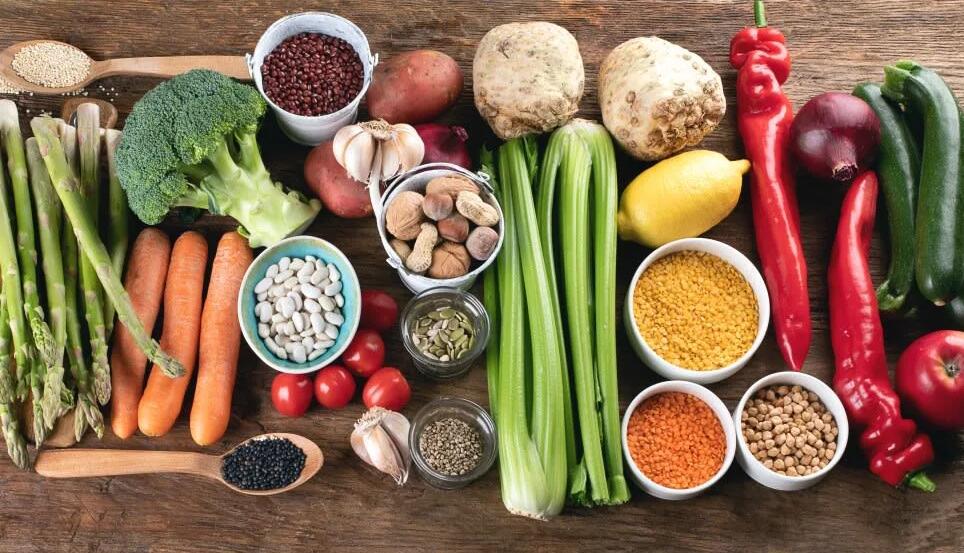
12 Foods to Include in an Anti-Dandruff Diet
1. Fatty Fish
Fatty fish like salmon, mackerel, and sardines are rich in omega-3 fatty acids, which are known for their anti-inflammatory properties. Inflammation is a key contributor to dandruff, as it can lead to an overgrowth of the fungus Malassezia. By incorporating fatty fish into your diet, you can help reduce inflammation and soothe an irritated scalp.
Omega-3s also play a crucial role in maintaining healthy skin and hair. They help to keep the scalp hydrated and promote the production of sebum, the natural oil that protects and nourishes the hair and scalp. A well-hydrated scalp is less likely to experience excessive dryness and flaking. This makes fatty fish an excellent addition to an anti-dandruff diet.
2. Eggs
Eggs are a powerhouse of nutrients that can benefit scalp health, making them an essential part of an anti-dandruff diet. They are rich in biotin (vitamin B7). It is essential for the production of keratin, the protein that makes up hair and nails. A biotin deficiency can lead to dry, brittle hair and a flaky scalp, so including eggs in your diet can help prevent these issues.
Additionally, eggs are an excellent source of zinc, a mineral that plays a vital role in regulating oil production on the scalp. Zinc deficiency has been linked to dandruff and other scalp conditions. So ensuring an adequate intake of this mineral can help keep your scalp healthy and balanced.
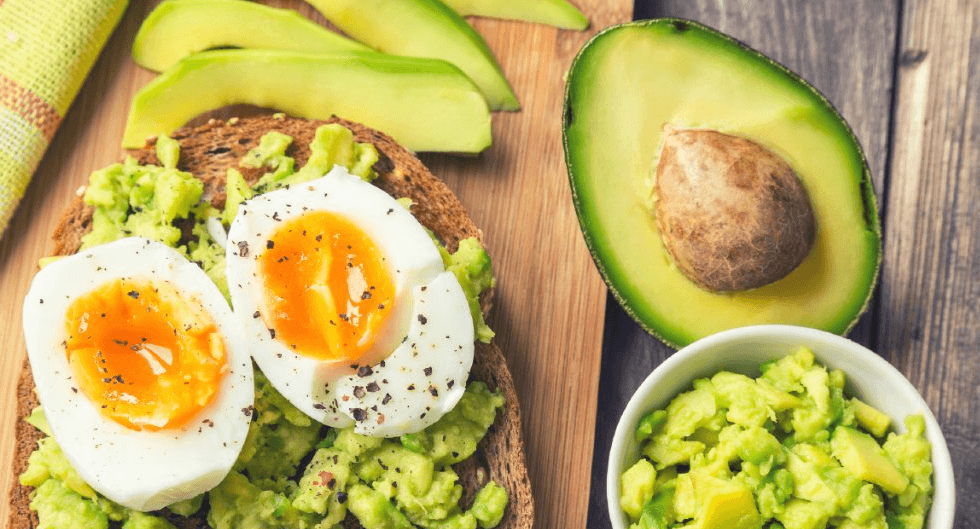
3. Avocados
Avocados are a versatile and nutrient-dense fruit that can be a valuable addition to an anti-dandruff diet. They are rich in healthy monounsaturated fats. It can help moisturize the scalp and prevent dryness, a common trigger for dandruff.
Furthermore, avocados are an excellent source of vitamin E, a powerful antioxidant that can help protect the scalp from oxidative stress and inflammation. Vitamin E also plays a role in promoting healthy hair growth and preventing hair loss. This makes avocados a double-whammy for scalp and hair health.
4. Nuts and Seeds
Nuts and seeds are nutrient-dense powerhouses that can provide a range of benefits for scalp health. Almonds, for example, are rich in vitamin E. It can help protect the scalp from inflammation and oxidative stress. Walnuts, on the other hand, are an excellent source of omega-3 fatty acids, which can help reduce inflammation.
Pumpkin seeds are another excellent addition to an anti-dandruff diet, as they are rich in zinc, a mineral that is essential for regulating oil production on the scalp. In addition, Flaxseeds and chia seeds are also great sources of omega-3 fatty acids. They are valuable additions to your diet for scalp health.
5. Leafy Greens
Leafy greens like spinach, kale, and Swiss chard are packed with vitamins and minerals that can benefit scalp health. These nutrient-dense vegetables are rich in vitamin A. Vitamin A deficiency has been linked to dry, flaky scalp conditions. So ensuring an adequate intake of this vitamin can help prevent dandruff.
Leafy greens are also an excellent source of vitamin C, which is essential for collagen production and can help promote healthy hair growth. Additionally, these greens are rich in antioxidants. It can help protect the scalp from oxidative stress and inflammation, two key contributors to dandruff.
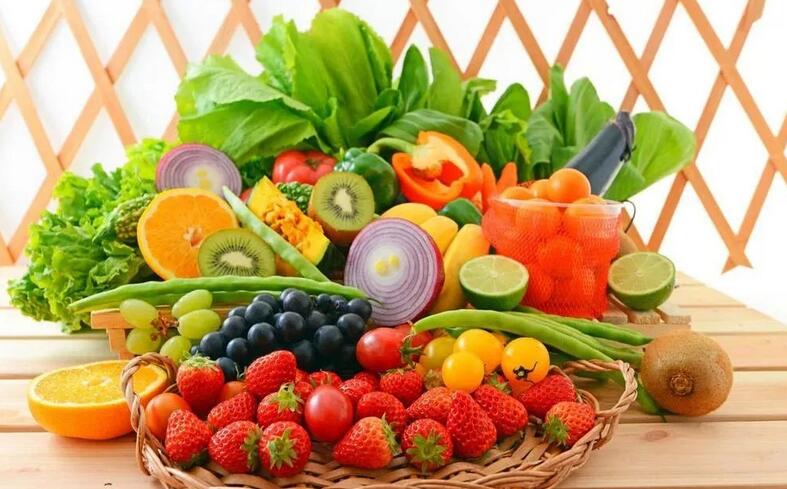
6. Probiotic-Rich Foods
Probiotic-rich foods like yogurt, kefir, and fermented vegetables can be valuable additions to an anti-dandruff diet. Probiotics are beneficial bacteria that can help maintain a healthy gut microbiome. It is essential for overall health, including scalp health.
A healthy gut microbiome can help reduce inflammation throughout the body, including on the scalp. Additionally, probiotics can help strengthen the immune system. It can be beneficial in fighting off the fungus Malassezia, a common cause of dandruff.
7. Garlic
Garlic is a flavorful and versatile ingredient that can also be a powerful ally in the fight against dandruff. This pungent bulb is rich in allicin, a compound with potent antifungal properties. Allicin can help combat the growth of the fungus Malassezia, which can contribute to dandruff.
Additionally, garlic has anti-inflammatory properties, which can help soothe an irritated scalp and reduce the inflammation that can exacerbate dandruff. Incorporating garlic into your diet can be a delicious and natural way to support scalp health and combat dandruff.
8. Poultry
Poultry, such as chicken and turkey, is an excellent source of protein, which is essential for healthy hair and scalp. Protein deficiency can lead to hair loss and a dry, flaky scalp. This makes it an important nutrient for an anti-dandruff diet.
Additionally, poultry is a good source of biotin (vitamin B7), which, as mentioned earlier, is crucial for the production of keratin, the protein that makes up hair and nails. Ensuring an adequate intake of biotin can help prevent dry, brittle hair and a flaky scalp.
9. Tofu and Tempeh
For those following a plant-based diet, tofu and tempeh can be excellent sources of protein and other nutrients that can benefit scalp health. These soy-based foods are rich in isoflavones, which are plant compounds with anti-inflammatory properties. By reducing inflammation, isoflavones can help alleviate the symptoms of dandruff and promote a healthier scalp.
Additionally, tofu and tempeh are good sources of zinc, a mineral that is essential for regulating oil production on the scalp. Ensuring an adequate intake of zinc can help prevent both excessive dryness and oiliness, two common triggers for dandruff.
10. Bananas
Bananas are a versatile and nutritious fruit that can be a valuable addition to an anti-dandruff diet. They are rich in biotin (vitamin B7). It is crucial for the production of keratin and can help prevent dry, brittle hair and a flaky scalp.
Additionally, bananas are a good source of vitamin C, which is essential for collagen production and can help promote healthy hair growth. Vitamin C is also an antioxidant that can help protect the scalp from oxidative stress and inflammation, two key contributors to dandruff.
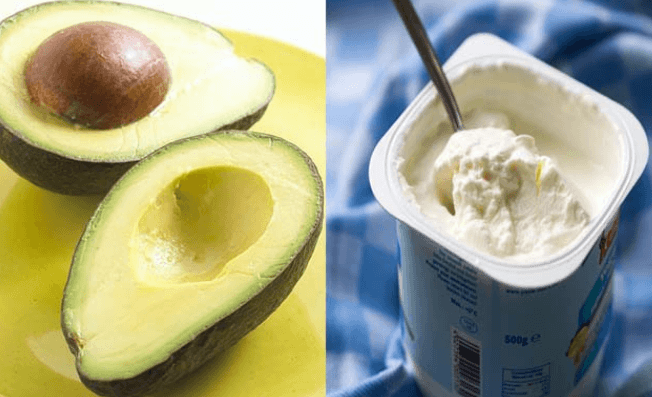
11. Olive Oil
Olive oil is a staple in many kitchens, but it can also be a valuable ally in the fight against dandruff. This healthy fat is rich in monounsaturated fatty acids. It can help moisturize the scalp and prevent dryness, a common trigger for dandruff.
Additionally, olive oil contains antioxidants like oleuropein and hydroxytyrosol, which can help protect the scalp from oxidative stress and inflammation. By incorporating olive oil into your diet, you can help keep your scalp hydrated and healthy, reducing the risk of dandruff.
12. Yogurt
Yogurt is a versatile and nutritious food that can be a valuable addition to an anti-dandruff diet. It is a probiotic-rich food that can help maintain a healthy gut microbiome and reduce inflammation throughout the body, including on the scalp.
Additionally, yogurt is a good source of protein, which is essential for healthy hair and scalp. It is also rich in zinc, a mineral that plays a crucial role in regulating oil production on the scalp and preventing both excessive dryness and oiliness.
Other Tips for Prevent Dandruff
While adjusting your diet can be a powerful tool for managing dandruff, there are other steps you can take to support a healthy scalp:
1. Keep your scalp clean: Regularly wash your hair with a gentle shampoo to remove excess oil, dirt, and dead skin cells. It can contribute to dandruff.
2. Avoid using harsh hair products: Some hair products, such as gels, mousses, and hairsprays, can irritate the scalp and lead to dandruff. Opt for milder and natural products instead.
3. Avoid stress: Stress can weaken the immune system and trigger dandruff. Practice stress management techniques such as exercise, meditation, or deep breathing exercises.
4. Use anti-dandruff shampoos: Look for shampoos that contain ingredients like zinc pyrithione, ketoconazole, or selenium sulfide, which have anti-fungal properties that can help reduce dandruff.
5. Limit the use of heat styling tools: Excessive heat from hairdryers, curling irons, and straighteners can dry out the scalp and contribute to dandruff. Use these tools sparingly and always apply a heat protectant spray before using them.
6. Avoid scratching your scalp: Scratching can further irritate the scalp and worsen dandruff. If you feel the urge to scratch, try using a gentle scalp massager or your fingertips instead.
7. Keep your hair and scalp moisturized: A dry scalp can lead to dandruff, so make sure to keep your hair and scalp hydrated. Use a moisturizing conditioner and consider using a scalp oil or serum to nourish your scalp.
Conclusion
Dandruff can be a frustrating and embarrassing condition, but the good news is that there are many foods you can take to manage it. By adjusting your diet, you can support a healthy scalp and reduce the risk of flakes and irritation.
Remember that everyone’s body is different, and what works for one person may not work for another. If you’re struggling with persistent dandruff despite making dietary changes, it’s important to speak with a healthcare professional.

